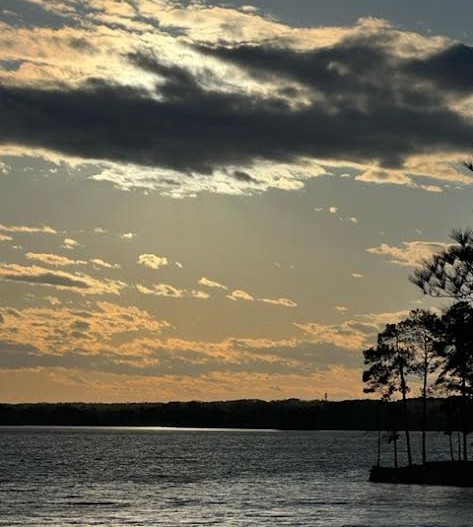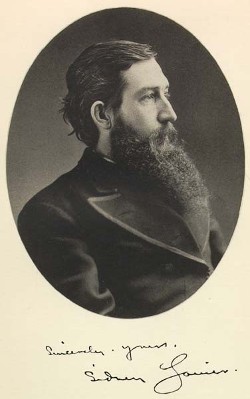By Elliott Brack
Editor and Publisher, GwinnettForum
MARCH 14, 2023 | “Hold on there,” Army Corps of Engineers and the Army Base Renaming Commission. There’s no major reason for you to rename Lake Lanier.
![]() After all, it’s named for Sidney Lanier, born in 1842 in Macon, who became, of all things, a poet and musician. He dutifully served as a private in the Confederate Army. He was later taken prisoner, spending four months in Baltimore, Md., where he caught tuberculosis, which eventually took his life in 1881.
After all, it’s named for Sidney Lanier, born in 1842 in Macon, who became, of all things, a poet and musician. He dutifully served as a private in the Confederate Army. He was later taken prisoner, spending four months in Baltimore, Md., where he caught tuberculosis, which eventually took his life in 1881.
The rebranding of some military bases which were first named for Confederate leaders was something that many of us could understand. After all, some of the Confederates having posts named for them were not even good leaders.
But Sidney Lanier? After being released to make his way home to Georgia, he was basically a learned man who was a musician, poet and teacher. C’mon now, the Army Corps of Engineers and Base Naming Commission, you want to take away the honor of having Lake Lanier named for Sidney Lanier, a man of letters who found acclaim and accomplishment after the Civil War?
The honor given Sidney Lanier in naming the lake which provides Gwinnett with its drinking water, was well deserved as Lanieer lived a peaceful and distinguished life after the Civil War. He is also commemorated by the naming of a bridge in Glynn County for him. The Sidney Lanier Bridge, the state’s largest cable-stayed bridge, opened in 2003.
Why was Lanier commemorated with the naming of a lake and bridge after him? Both are tied directly to his poetry, The Song of the Chattahoochee and the Marshes of Glynn.
Some feel the Marshes of Glynn is Lanier’s masterpiece. The poem begins with a rhythmic description of the thick marsh teeming with wildlife “as the narrator feels himself growing and connecting with the sinews of the marsh itself.” His vision expands as the marshes and sea, in their vastness, are the expression of “the greatness of God” and are filled with power and mystery.
Yet to us, even more powerful is the Song of the Chattahoochee. Anyone familiar with the Chattahoochee River will be moved by the lilting and rhythmic phrasing of Lanier’s poem, which jumps and bounces and and reverberates along in such a way that you can almost feel the waters flowing so bountifully. It is mighty! The first verse of that poem:
Out of the hills of Habersham,
Down the valleys of Hall,
I hurry amain to reach the plain,
Run the rapid and leap the fall,
Split at the rock and together again,
Accept my bed, or narrow or wide,
And flee from folly on every side
With a lover’s pain to attain the plain
Far from the hills of Habersham,
Far from the valleys of Hall.
The Corps of Engineers and Base Naming Commission rightfully fulfilled their duties in changing the name of some of our Army bases which memorialized unworthy people. Now these two units have paused their consideration, but are asking for input on whether to change the name of Lake Lanier.
We insist on a loud “NO” to this re-naming.
Let Sidney Lanier’s name and reputation remain intact in recognition for his work and his career in his peaceful and productive life as a poet, musician and teacher after the Civil War.
- Have a comment? Send to: elliott@brack.net











Follow Us